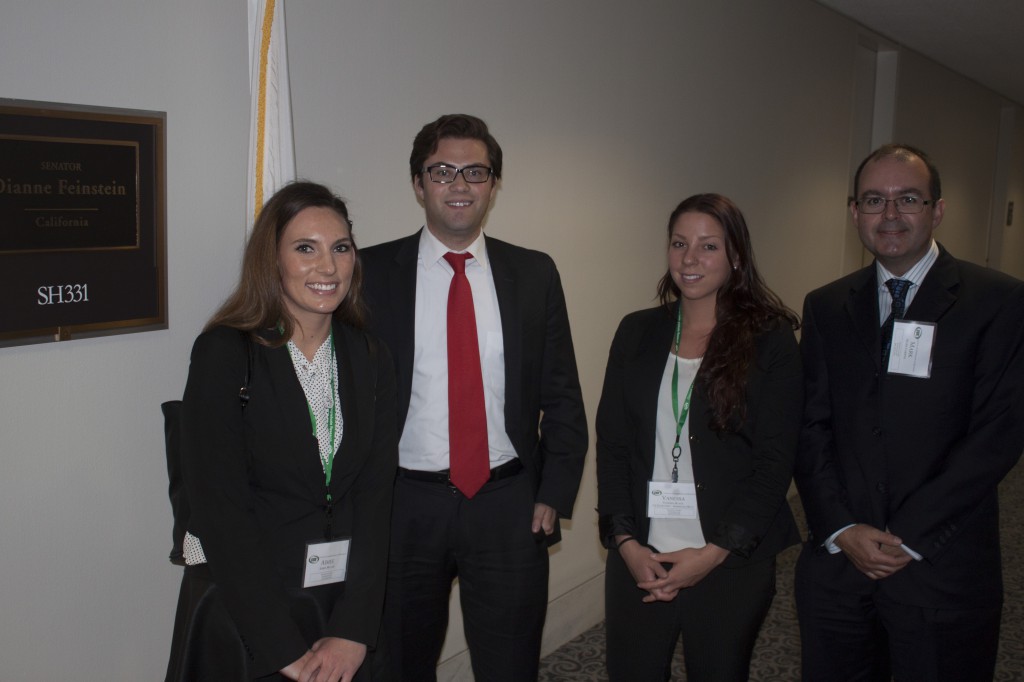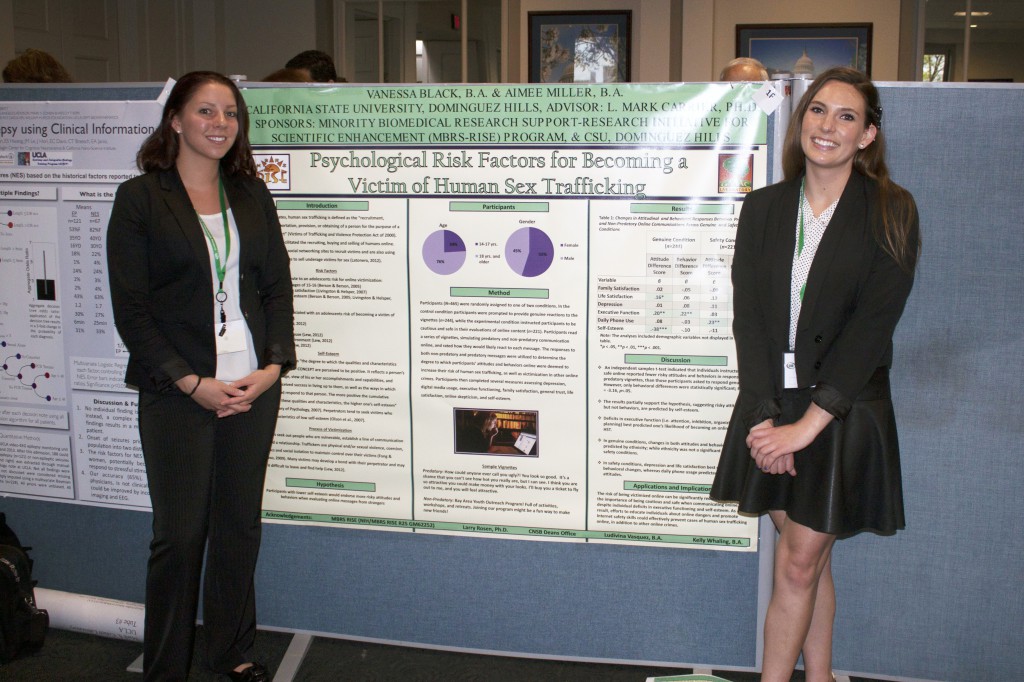
A California State University, Dominguez Hills study by a team of psychology students has found that persons with low self-esteem are at a greater risk of becoming victims of online crime, but that safety messaging greatly reduced that risk.
Psychology Alumna Vanessa Black and graduate student Aimee Miller presented their findings to lawmakers, Congressional staff and funding agency representatives on April 29 in Washington D.C. during the national Council for Undergraduate Research’s 18th Annual “Posters on the Hill.” CSU Dominguez Hills was among 60 universities selected out of a pool of 600 nationwide– one of only two from California–to showcase the impact and importance of supporting student research.
“It was a really gratifying experience and I was really honored to represent our university and the research that’s
being conducted here,” said Miller, who will complete her master’s degree at the end of summer and plans to apply to doctoral programs in clinical psychology.
The study they presented, “Psychological Risk Factors for Becoming a Victim of Human Sex Trafficking,” was a project that Black (Class of 2012, B.A. psychology) began while an undergraduate working in the psychology department’s George Marsh Applied Cognition Laboratory.
“I started looking at voyeurism,” said Black, who currently works as a lab manager at LA BioMed and will be applying to graduate programs in the fall, “and this lab is about psychology and technology so I started reading articles about human sex trafficking. I got very disturbed and concerned about the subject area.”
Together with Miller and their faculty mentor, psychology department chair and professor Mark Carrier, Black set out to examine the question of what makes someone susceptible to the predatory messages on the Internet that could lead to human sex trafficking.
The study involved 465 participants ranging from teenagers to adults from both sexes and varying ethnic backgrounds who were asked to read a series of messages that Black and Miller created to be predatory and non-predatory and evaluate their reaction to each message. Black and Miller also had each participant complete a series of tests to assess self-esteem, life satisfaction, as well as their “executive functions” related to problem-solving, reasoning, inhibition, planning and memory.

Among their findings, Black said they found that people with low self-esteem hold “a higher positive attitude toward random strangers who send them predatory online messages than do people with high self-esteem.” Additionally, people with lower executive functions also exhibited a higher positive attitude but also a higher risk of acting on the messages than those with higher executive functions.
“We’ve had several studies looking at risky online behavior and we’re starting to notice a pattern, where the executive function problems are often the best predictor of people’s risky online behavior,” Carrier noted. “So that’s really exciting because then we can begin to look at that in more detail.”
The result from this particular study can be applied toward ways of reducing vulnerability to online dangers, such as increasing self-esteem, but perhaps more significantly, through greater education and messaging on the importance of being cautious, they said.
“Another finding with a strong implication was that simply by prompting them to go online or look at these messages with the intent to be safe that significantly altered how they viewed the messages so they were less likely to behave in a risky manner,” Miller said. “This speaks to the necessity of parents and schools to educate adolescents and really all age groups about the online dangers that are out there and the need to be cautious when evaluating senders of messages.
“Another way this study can be implemented in a similar way is by having messages, on Facebook for example–like on the sidebar where they advertisements; If you just had a caption that said something like ‘remember be safe’ that that might really decrease risk behavior.”
Carrier said he was very proud of Black for her dedication to complete the study post-graduation and despite a full-time job. Having been selected to present at Posters on the Hill was further validation of her persistence, he said.
“It’s a really good reward and reinforcement for having stuck to it this whole time,” he said.
Their study has been accepted as poster presentations at the Association of Psychological Sciences in May, which Miller will present, and the American Psychological Association in August, where Black will present. Their findings also will be published in an upcoming book, “The Wiley-Blackwell Handbook of Psychology, Technology and Society,” edited by CSU Dominguez Hills professors Nancy Cheever, Larry Rosen, and Mark Carrier.
The study was partially funded by the Minority Biomedical Research Support (MBRS-RISE) programs of the National Institutes of Health.